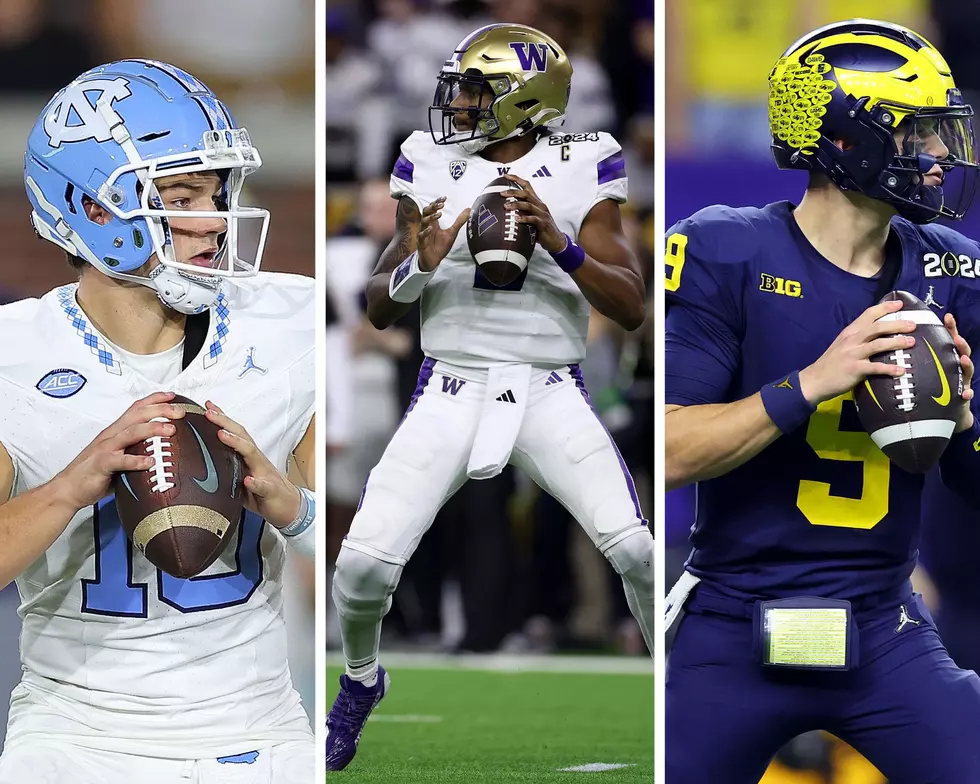
‘Domestic Violence is Bigger than Football, Sports’
"Domestic violence is a cycle of power and control that happens in an intimate partner relationship. It usually involves physical, psychological, sexual violence, and sometimes stalking. We often refer to it as intimate partner violence," says Krista Heeren-Graber, Director of South Dakota Network Against Family Violence and Sexual Assault.
Did you know that one in every four women will experience domestic violence in their lifetime? Or an estimated 1.3 million women are victims of physical assault by an intimate partner each year, and 85% of domestic violence victims are women? (National Coalition of Against Domestic Violence).
Males and females are both victims of domestic violence, yet it just happens that more women are frequently affected by it.
"Anyone can experience domestic violence and can be a victim of domestic violence. Of course men will report less most likely than women will, but women will report because men are more often in a position of strength, size and the predominant aggressor," adds Heeren-Graber.
When domestic violence occurs, it's even tougher for victims to call for help and leave. Heeren-Graber tells me that when domestic violence occurs, the average time people call for help the first time is seventy times. Then, the average time a woman stays before she leaves is seven or eight times.
Janay Palmer-Rice married Ray Rice the day after his indictment and stuck by his husband's side after he struck and knocked her unconscious in an elevator in a casino. Like this situation, it's not uncommon for victims to stay with their partners.
"A lot of times they have been convinced by their offender that it is their fault. They are to blame. If they would do things differently, they wouldn't be hit or harmed. It's kind of like the psychological torture or messages you get everyday that you are worthless and start to believe them," tells Heeren-Graber.
A lack of financial resources is another reason victims stay. Getting custody of children is expensive. Victims can also become frustrated with law enforcement. Yes, police are very helpful, and respond quickly, but when the cases go through the justice system, charges can get dropped. As a result, victims get disappointed.
Most notably though, Heeren-Graber explains that leaving is the most threatening decision a domestic violence victim can make.
"Leaving is very difficult and the most dangerous time for a victim of intimate partner violence is when they are fleeing. It is often when they are killed or seriously injured. Many women are fearful of that and assume if they stay, they are going to be safer because they know what to expect. If they leave, they are going to be stalked for the rest of their life," Heeren-Graber shares.
For the Rice situation in the NFL, that's the concern many have for Rice's now-wife, Janay. Why did she stay? She appeared in a press conference in May and has stuck by Ray's side, saying,
“I do deeply regret the role that I played in the incident that night, but I can say that I am happy that we continued to work through it together.”
Heeren-Graber says that she hopes Tanay Rice-Palmer realizes that it's not her fault and that it doesn't affect future relationships.
"Of course her response in the media is what we expect it would be. That it was her fault and she had some role in it. Which she didn't. It doesn't matter what she did. I saw the video. I don't what she would have possibly done, but it doesn't matter. There's no excuse for his behavior. My concern is that showing the video the harm it caused her and her family members."
The Rice case is one of three domestic cases going on in the NFL now. Outside of football, it happens far too much, too. Society isn't just exposed to it every day. Every nine seconds a woman is battered by a domestic violence offender? It's sad, and unfortunately, perhaps society needed to see the Rice video to truly understand how horrific domestic violence truly is.
"I think that's what we need. We need to actually see it because we don't believe it. I don't know why we don't believe it because he (Ray Rice) drug her (Tanay Rice-Palmer) off the elevator unconscious. How does that happen?," adds Heeren-Graber.
Plain and simple - it shouldn't happen. If she was a loved one to Rice, why was he dragging her? Shouldn't he be carrying her off the elevator? Now, Rice has to live with the realization that the way he treated Janay Palmer-Rice will affect the rest of his life as his professional football career is over for now.
The NFL and law were initially was lenient in handing Rice only a two-game suspension and dropping simple assault charges. Since TMZ released the video on Monday, the league has suspended him indefinitely and the Baltimore Ravens have released him from the team. New Jersey lawmakers would like to see Rice prosecuted again as well. This case was poorly handled and this issue is bigger than the game itself. Heeren-Graber said she heard someone say 'domestic violence is a serious problem, football is just football.'
"I thought that's very telling, but that's not how we handle it in society. Football is like our church and domestic violence is that social problem that happens to other people. I like the fact he worded it that way. Football is football. Domestic violence is killing people. We've had a few domestic violence related deaths and serious injuries in 2014 in our state (South Dakota)."
On the plus side, the Rice scandal has actually made men talk about the importance of respecting their spouses, and kids.
"The positives is that men are talking about domestic violence and that's a good thing. It's a man problem, and until men address this way of relating, it will continue," tells Andy Vos, Intervention Coordinator at the Compass Center.
So, the message is clear - it's never okay to hit a significant other, or child nonetheless.
"You shouldn't ever hit anybody. I don't care if it's a man or woman or who it is. That was a very violent blow that he hit her. There's no excuse for that ever. We talked about in our office that when you are harming someone with that type of violent intent and he (Rice) could have killed her. There's no excuse for that whatsoever. Hopefully, the message is we are not perfect, but nobody should have to turn to violence. Relationships are not about controlling each other. We should be able to learn how to communicate and you should never turn to violence," explains Heeren-Graber.
And parents, relay this message to your kids. Heeren-Graber's 17-year old son watched the video, and she has told him that hitting people you love is not acceptable. Now, Heeren-Graber is hoping that other parents will feel the same way and be outraged to tell their kids that violence isn't the answer.
"You shouldn't turn to violence for many reasons. First of all, that's not how to have a relationship. It's against the law. They could go to jail and kill somebody. We need to talk about non-violent ways to communicate and I am hoping that parents take a stand and say that was horrible."
Treat each other respectfully and if you are not getting along or having problems, don't turn to violence. Use resources to get help. For victims of domestic violence, there are shelters, hotlines to call for counseling and services, and it's important to turn to safe family and friends. Businesses should also form policies to help domestic violence victims, as jobs are sometimes the only time for victims to get away from an unhealthy home environment and to ask for help. Lastly, but most importantly, don't hesitate to call law enforcement
In today's society. it's key to have a voice, and a big reason is social media. After Rice's video came out on Monday, many used Facebook, and Twitter to voice their concerns. The hashtag #WhyIStayed or #WhyILeft was trending on the social media networks. Use these as an avenue to voice concerns about domestic violence.
"I think as citizens, we have a lot say. Especially now more than ever because of social media. That our voice really matters and we can make a long-term difference. That's something that we are going to learn - for people are going to be outraged and to say something matters now than it has before," says Heeren-Graber.
Speak up and don't be afraid. Show that domestic violence is a serious problem in society and not just in the NFL. It was before the Rice case, and will continue to happen. Don't walk away from this issue of domestic violence after it isn't hot news anymore and it's not important.
If you know someone that is affected, or is affected by domestic abuse, you can call the domestic abuse hotline in South Dakota: 1-800-430-SAFE. Also, go to www.SDNAFVSA.com. There's a map of shelter services and phone numbers for victims of domestic abuse. The Compass Center is available to talk as well. Visit www.compasscenter.org or call 1-877-IN-CRISIS.
*Comment below or email Sam Tastad at tastadsam@gmail.com. Follow him on Twitter @samtastad.
More From KSOO-AM / ESPN Sioux Falls









